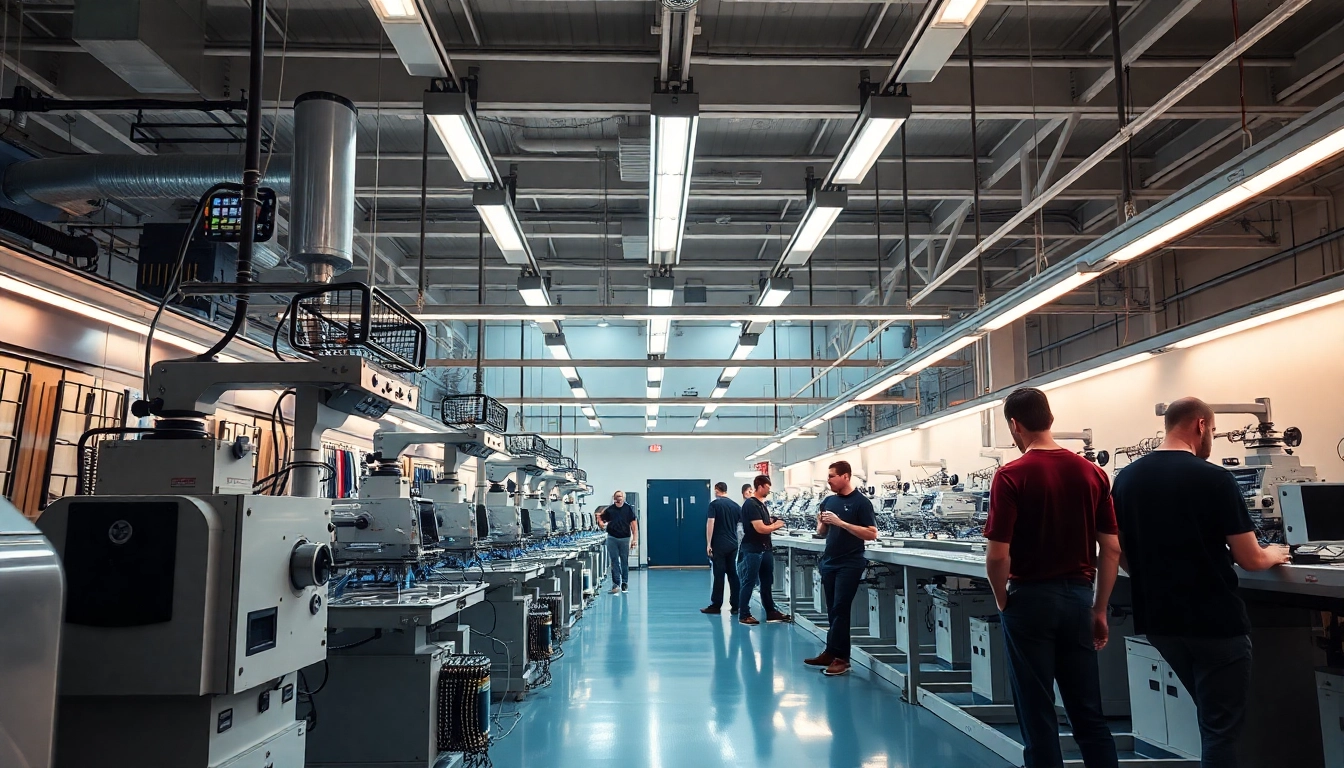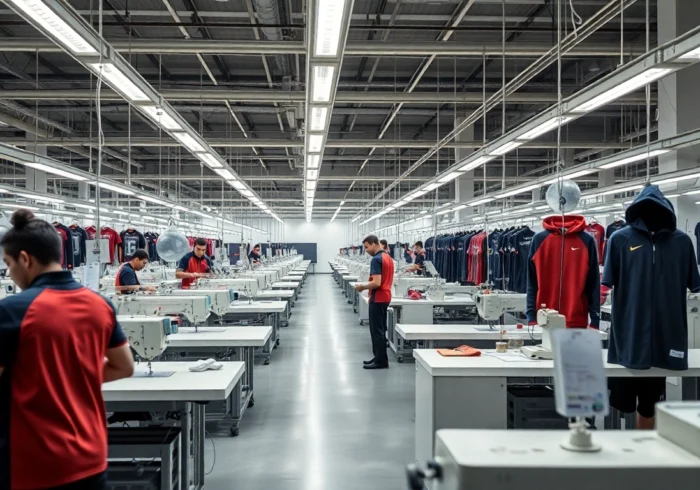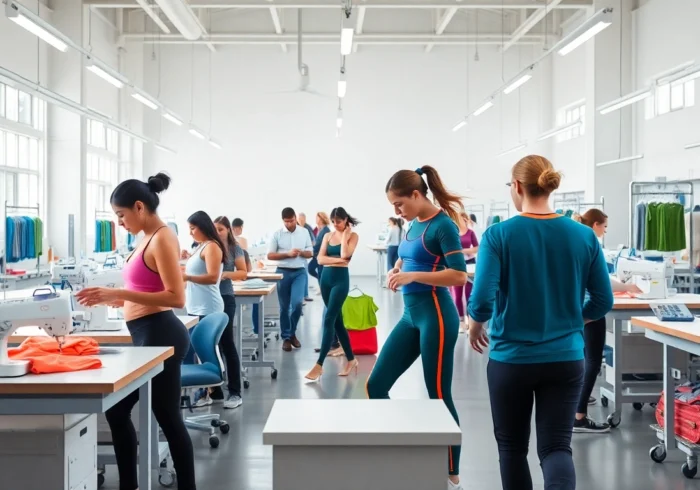Understanding the Role of a Sportswear Factory in Sports Apparel Production
In the dynamic world of sports apparel, a sportswear factory serves as the backbone of quality, innovation, and customization. These manufacturing facilities are instrumental in transforming design concepts into tangible athletic garments that meet both industry standards and consumer expectations. From high-performance jerseys to casual activewear, sportswear factories utilize advanced technology, skilled labor, and strict quality control protocols to deliver products that suit diverse sporting needs. This article delves into the multifaceted functions of sportswear factories, especially those based in Pakistan, highlighting best practices, collaboration strategies, and emerging trends shaping the future of sports apparel manufacturing.
Key functions and services offered by sportswear manufacturing facilities
Sportswear factories are specialized production hubs that encompass a broad spectrum of services designed to streamline the journey from raw materials to finished products. These functions include:
- Design and Development: Collaborating with brands and designers to develop prototypes, technical specifications, and customized apparel models aligned with current trends and athlete needs.
- Material Sourcing: Securing high-quality fabrics such as moisture-wicking polyester, compression textiles, and sustainable textiles that enhance performance and durability.
- Cutting and Sewing: Precision cutting based on patterns, followed by sewing with advanced machinery to ensure manufacturing efficiency and product consistency.
- Printing and Embroidery: Adding branding, sponsorship logos, or unique design elements through screen printing, sublimation, or embroidery techniques.
- Quality Control: Conducting rigorous inspections to ensure the final products meet specifications, durability standards, and safety regulations.
- Packaging and Logistics: Preparing products for shipment, managing inventory, and coordinating with logistics partners to deliver on time globally.
By offering comprehensive services, sportswear factories facilitate end-to-end solutions that cater to the needs of sports teams, fitness brands, and retail distributors.
How sportswear factories meet industry standards and quality benchmarks
Maintaining high standards is crucial in sportswear manufacturing, as athletes depend on gear that can withstand rigorous activities and environmental conditions. Successful factories adopt several practices to ensure quality:
- Adherence to Certifications: Implementing standards such as ISO 9001 (Quality Management), ISO 14001 (Environmental Management), and OEKO-TEX for non-toxic textiles ensures compliance with global benchmarks.
- Material Testing: Conducting tensile strength, colorfastness, breathability, and moisture management tests to validate fabric suitability for specific sports.
- Process Control: Utilizing statistical process control (SPC) and regular audits during production to minimize defects and ensure consistency.
- Sample Development and Approval: Creating samples for client approval and testing prototypes under real-world conditions before mass production.
- Post-production Inspection: Performing final inspections and wear tests to verify durability, fit, and finish.
For factories based in Pakistan, such as those highlighted in recent industry analyses, adopting international quality standards remains a competitive advantage, reinforcing trust with global brands.
Types of sportswear products typically produced in factories
Sportswear factories handle a diverse array of products tailored for various sports, fitness, and casual activities. These include:
- Team Jerseys and Kits: Custom-designed uniforms for soccer, cricket, basketball, and other team sports.
- Performancewear: Compression shirts, leggings, and moisture-wicking Lycra for athletes seeking enhanced performance and recovery.
- Training and Gym Apparel: Tracksuits, shorts, tank tops, and hoodies for training sessions and casual workouts.
- Footwear and Accessories: While primarily manufactured by footwear factories, sportswear factories often produce caps, gloves, socks, and bags.
- Sustainable and Eco-Friendly Lines: Innovative products made with recycled fabrics and eco-conscious manufacturing processes to meet the rising demand for sustainability.
Manufacturers in Pakistan are adept at producing high-quality, cost-effective sportswear across these categories, making them preferred partners for many global companies.
Steps to Partner with a Sportswear Factory for Custom Apparel
Evaluating factory capabilities and production capacity
Partnering effectively begins with thorough evaluation. Key considerations include:
- Capacity and Scalability: Ensuring the factory can handle your order volume and scale production as your brand grows.
- Technical Expertise: Assessing machinery, infrastructure, and experience in producing your specific product types.
- Certifications and Compliance: Verifying adherence to industry standards and sustainability practices.
- Previous Client Portfolio: Reviewing case studies and references to gauge reliability and quality history.
This meticulous assessment reduces risk and sets a foundation for a fruitful partnership.
Designing your sportswear: materials, styles, and personalization options
Design customization is vital to brand identity. Working with your manufacturer involves:
- Choosing appropriate fabrics that balance performance, comfort, and sustainability.
- Developing technical drawings and specifications for styles, cuts, and features.
- Exploring personalization options like custom logos, printing techniques, and color schemes.
- Creating prototypes and samples for approval, ensuring alignment with your vision.
The goal is to translate innovative design concepts into manufacturable products without compromising quality or functionality.
Communicating specifications and ensuring quality control
Effective communication streamlines production and maintains standards. Best practices include:
- Establishing detailed technical packs outlining materials, measurements, and construction details.
- Utilizing project management tools or regular video calls to monitor progress.
- Implementing sampling and pre-production approvals to catch issues early.
- Setting up Quality Assurance protocols during manufacturing, including periodic inspections and final audits.
This rigorous approach minimizes errors, reduces waste, and guarantees that deliverables meet your specifications.
Benefits of Manufacturing in a Sportswear Factory in Pakistan
Cost competitiveness and scalability for brands and teams
Pakistan stands out as a leading hub for affordable, high-quality sportswear manufacturing. Advantages include:
- Lower labor and material costs compared to Western markets.
- Ability to produce large quantities with consistent quality.
- Flexible MOQs (Minimum Order Quantities) facilitating small and large batch orders.
- Established logistics networks supporting efficient international shipping.
These factors enable brands to scale their operations efficiently while maintaining competitive pricing.
Access to experienced OEM manufacturers and private label services
Many Pakistani factories, like those referenced in recent industry reports, offer OEM (Original Equipment Manufacturer) and private label solutions, providing:
- Expertise in technical design, pattern making, and prototyping.
- Branding, packaging, and customized labeling capabilities.
- Fast turnaround times and reliable production schedules.
This flexibility allows brands to focus on marketing and expansion, knowing manufacturing is handled by experienced, dependable partners.
Supporting sustainable practices and innovative textile solutions
The evolving sportswear industry increasingly demands sustainability. Pakistani manufacturers are actively integrating eco-friendly textiles, such as recycled polyester and organic cotton, and adopting green production techniques. These initiatives include:
- Reducing water and energy consumption in manufacturing processes.
- Implementing waste management and recycling programs.
- Partnering with global certification bodies for environmental standards.
Sustainable manufacturing not only benefits the environment but also appeals to eco-conscious consumers worldwide.
Best Practices for Successful Collaboration with a Sportswear Factory
Building transparent communication and clear timelines
Open, ongoing dialogue is the bedrock of a successful partnership. To achieve this:
- Set clear expectations from the beginning, including lead times, quality standards, and communication protocols.
- Regularly update project statuses through video calls, reports, and shared project management platforms.
- Address challenges promptly, fostering a collaborative problem-solving approach.
This transparent process minimizes misunderstandings and ensures alignment at every stage.
Implementing quality assurance protocols and sampling
Quality assurance should be integrated throughout production:
- Request multiple sample stages for approval before mass production.
- Conduct factory audits and quality inspections at key milestones.
- Implement rapid feedback loops to adjust specifications as needed.
- Employ third-party inspectors for unbiased final quality checks.
These measures significantly reduce defective products and enhance brand reputation.
Managing logistics and timely delivery for market launches
Logistics planning is critical for market success. Strategies include:
- Coordinating shipping schedules with manufacturing timelines.
- Utilizing trusted freight forwarders with experience in sportswear exports.
- Ensuring proper packaging to prevent damage during transit.
- Contingency planning for delays or customs issues.
Effective logistics management ensures your products reach the market on time, capturing sales opportunities and building consumer trust.
Future Trends in Sportswear Manufacturing and Innovation
Advancements in sustainable fabrics and eco-friendly manufacturing
As sustainability becomes a decisive factor, manufacturers are exploring new eco-friendly materials, such as biodegradable textiles and waterless dyeing techniques. These innovations aim to reduce environmental impacts while maintaining performance standards.
Incorporating smart textiles and wearable technology
Smart textiles equipped with sensors and connectivity features are revolutionizing sportswear. Applications include monitoring biometric data, providing real-time feedback, and enhancing athlete performance. Factories are investing in R&D to produce integrated wearable tech seamlessly embedded into garments.
Adapting to consumer preferences and emerging sports markets
Changing consumer behaviors favor athleisure, customization, and multifunctional apparel. Additionally, new sports and fitness trends—such as e-sports, extreme sports, and wellness activities—are driving demand. Manufacturers embracing agility and innovation will better serve these evolving markets.



